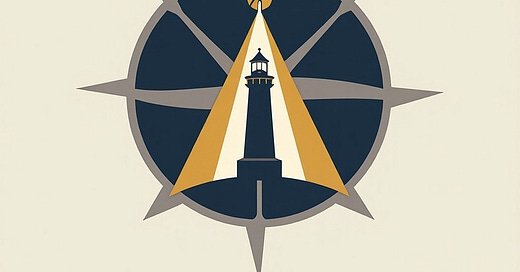What if the way back isn’t through policy—but through principle?
In the noise of division and the rush to assign blame, we forget that dehumanization is not a partisan failure. It’s a moral one. A lapse in empathy. A retreat from grace.
We see it everywhere: labels replacing names, threats replacing stories, fear replacing faith in one another. But these aren’t just trends—they’re choices. And we’ve made them before.
I once asked a neighbor why she believed what she believed. Her answer? “Because I watch the news.”
It wasn’t cruelty. It was certainty—manufactured by repetition.
That moment became a turning point for me. I felt more compelled to expose this trend. Subtle manipulation, I believe, is evil—and people might resist it if they know it exists.
That’s the question Lincoln asked us to face. Not with slogans. With soul-searching.
🧭 Grace as a Compass
Grace is more than forgiveness. It’s a moral orientation. A cardinal point on the compass of self. When we focus on grace, we move from shame and regret to something deeper: a sense of correctness in action. Empathy lives near grace—for we must first realize we should care, before we can act with grace.
But why is it so hard to access?
🚧 Barriers to Grace
The barriers are real—and deeply human.
They are self-imposed and rooted in survival instincts. Our ancestors labeled threats quickly to survive. That same reflex lives in us now. When fear is amplified—by repeated stories, by personal trauma, by political rhetoric—our ability to see the person in front of us begins to fade.
We stop asking questions. We stop listening. We cling to labels. And the space between us grows.
📈 The Politics of Dehumanization
Today, undocumented immigrants, disenfranchised voters, and the poor are reduced to data points: statistics, budget items, enforcement categories. We talk about them, not with them. We pass laws based on projections, not people.
This is how dehumanization works in modern life:
Turn people into numbers.
Frame empathy as weakness.
Feed fear with repetition.
The erosion of truth goes hand-in-hand with the erosion of compassion. And in that void, power thrives.
But Lincoln showed us another way.
📜 The Mirror of Grace
Lincoln didn’t just call us to remember our founding ideals. He called us to become them. He held up a mirror and made the country see both its promise and its failure.
Perhaps he discovered a principle of character that he could no longer ignore. A truth so foundational, it cost him his life—but not before it vindicated his soul.
We can’t erase that legacy. But we can continue it.
🕊️ Grace in Sixty Seconds
If I had sixty seconds with my fellow Americans, I would say this:
“Seek and offer grace—like Lincoln and Reagan did. Dissolve the tension and division around immigration and identity. Refuse to be at war with your neighbors. See the person again. Choose empathy over control. Choose redemption over resentment.”
Because grace is not passive. It is the most radical civic act we can offer.
“Liberty, when denied to some, is fragile for all.”
This is the power of democracy—not just in law, but in spirit.
This is us—if we remember to choose grace.






Share this post